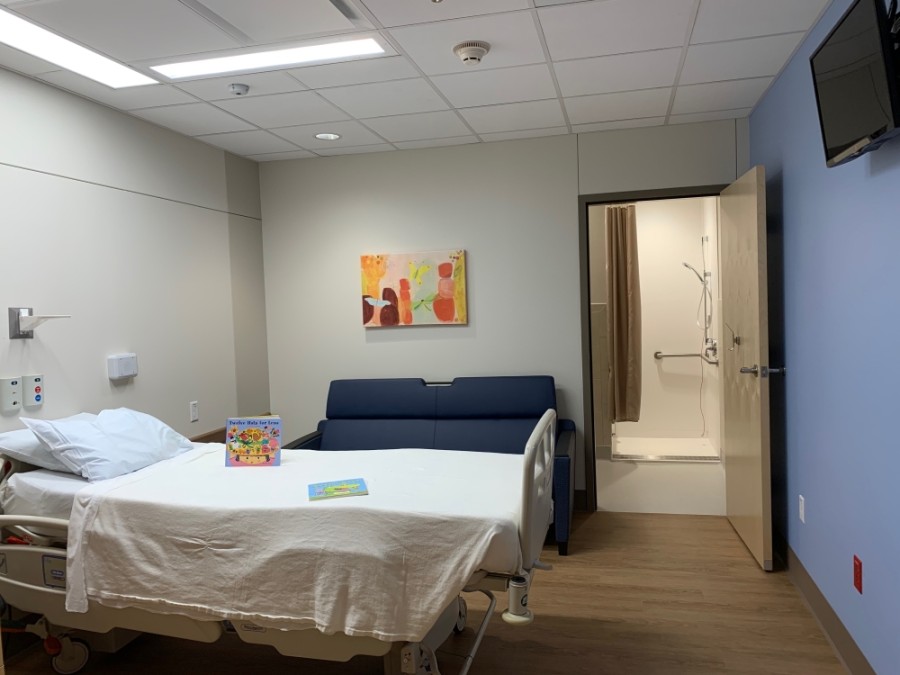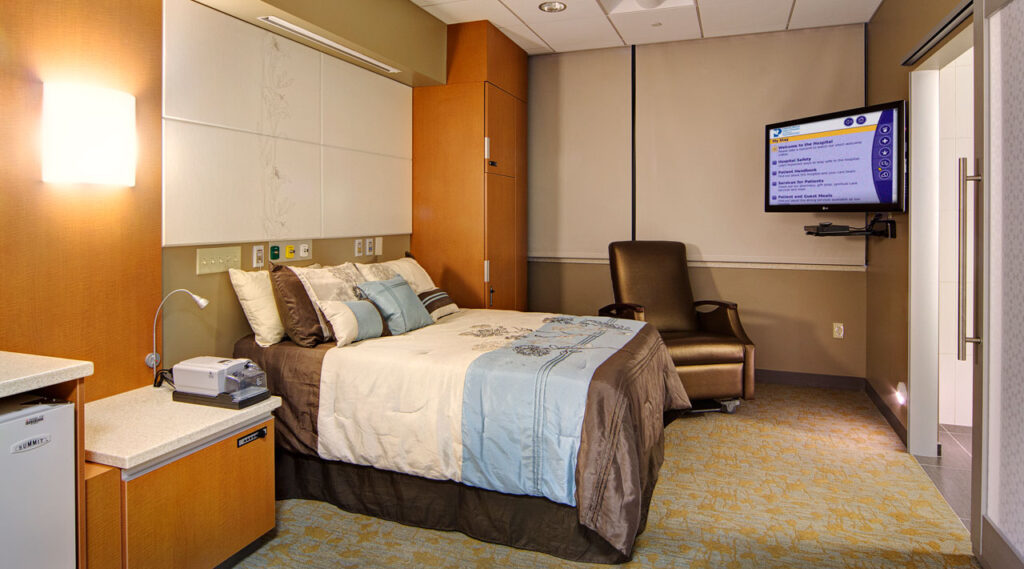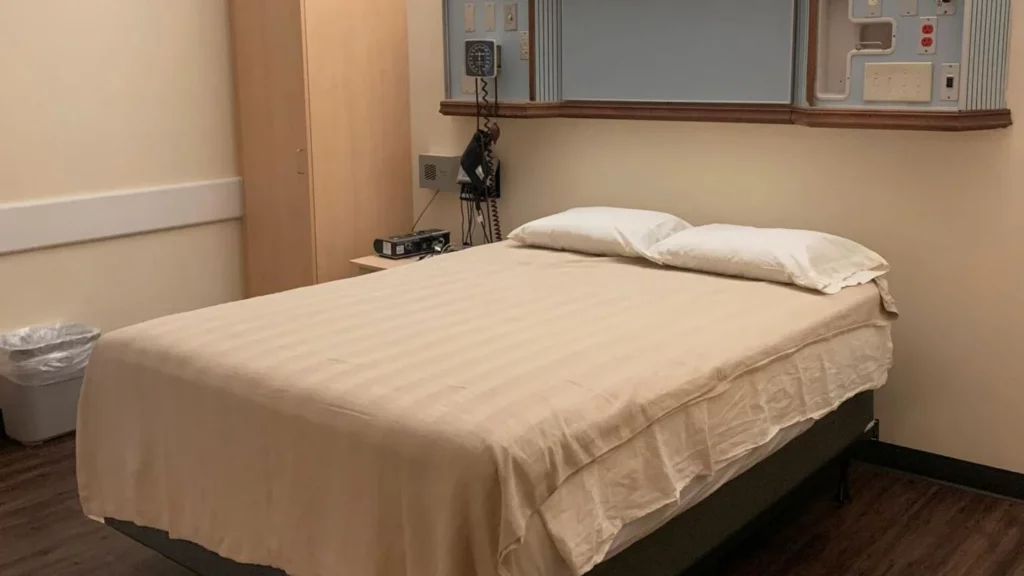Sleep is an essential part of our daily lives. It allows our bodies and minds to rest, recharge, and restore themselves. However, many people struggle with sleep-related issues that affect their overall quality of life. To address this, sleep study clinics have emerged as comprehensive sleep assessment centers aimed at diagnosing and treating various sleep disorders. In this article, we will delve into the importance of sleep study clinics, their inner workings, the different types of sleep disorders they deal with, and the tools and techniques they utilize. We will also share insights on how to prepare for your visit to a sleep study clinic.
Understanding the Importance of Sleep Study Clinics
The Role of Sleep in Overall Health
Before exploring sleep study clinics, it is crucial to understand the vital role that sleep plays in our overall health. Sleep is not merely a period of rest; it is a dynamic process that allows our bodies to recover and rejuvenate.
A good night’s sleep is essential for the proper functioning of the immune system, brain function, emotional well-being, and physical performance. Insufficient or poor-quality sleep can lead to a myriad of health issues, including increased risk of chronic conditions like obesity, diabetes, cardiovascular diseases, and mental health disorders.
Sleep study clinics employ a multidisciplinary approach including medical professionals, psychologists, and sleep technologists, ensuring that you receive comprehensive care tailored to your specific needs. Additionally, these clinics offer state-of-the-art diagnostic tools and therapies to help you understand and overcome your sleep-related challenges effectively.
Moreover, during sleep, the body undergoes essential processes such as tissue repair, muscle growth, and the release of hormones that regulate growth and appetite. The brain also consolidates memories and processes information gathered throughout the day, contributing to cognitive function and overall mental well-being.
Why Choose a Sleep Study Clinic?
While occasional sleep disruptions are normal, chronic sleep problems require professional attention. This is where sleep study clinics come into the picture. These specialized centers are equipped with the knowledge, experience, and tools necessary to assess and diagnose sleep disorders accurately.
By choosing a sleep study clinic, you are not only gaining access to cutting-edge technology and treatment options but also benefiting from the expertise of healthcare professionals who specialize in sleep medicine. These clinics often conduct overnight sleep studies, known as polysomnograms, to monitor various aspects of your sleep, such as brain waves, heart rate, breathing patterns, and body movements. This comprehensive evaluation helps in identifying underlying sleep disorders like sleep apnea, insomnia, narcolepsy, and restless legs syndrome, among others.

The Inner Workings of a Sleep Study Clinic
The Process of Sleep Assessment
When you visit a sleep study clinic, the first step is to undergo a sleep assessment. This involves a thorough evaluation of your medical history and sleep patterns. You will be asked to provide information about your sleep habits, any significant symptoms you are experiencing, and potential factors contributing to your sleep issues.
During the sleep assessment, the clinic’s team of experts will take the time to understand your unique circumstances and concerns. They will listen attentively to your experiences and ask detailed questions to gather as much information as possible. This comprehensive approach ensures that no aspect of your sleep health is overlooked.
Based on this initial assessment, the sleep clinic team will recommend further diagnostic testing, if necessary. These tests typically involve spending a night at the clinic, where your sleep patterns, breathing, heart rate, and brain activity will be monitored and analyzed using advanced equipment and technology.
During your overnight stay, the sleep technologists will attach sensors to your body to record various physiological signals. These sensors are painless and non-invasive, designed to measure your brain waves, eye movements, muscle activity, heart rate, and breathing patterns. The sleep clinic’s state-of-the-art monitoring equipment ensures that every detail of your sleep is captured accurately.
The Team Behind Your Sleep Study
At the heart of every sleep study clinic is a dedicated team of professionals committed to helping you achieve better sleep. This team typically includes sleep medicine physicians, sleep technologists, respiratory therapists, and psychologists. Learn more about psychologists visit at https://psychology.edu/.
Sleep medicine physicians are experts in diagnosing and treating sleep disorders. They have extensive knowledge of the complexities of sleep and its impact on overall health. These physicians work closely with sleep technologists who specialize in conducting sleep tests and monitoring patients during their sleep studies. The sleep technologists are highly trained professionals who ensure that the data collected during your sleep study is accurate and reliable.
In addition to physicians and technologists, respiratory therapists play a crucial role in evaluating and managing breathing-related sleep disorders such as sleep apnea. These skilled professionals are trained to assess your breathing patterns and provide appropriate interventions to improve your breathing while you sleep.
Psychologists may also be involved in providing counseling and cognitive-behavioral therapies to address psychological factors impacting sleep. They can help you identify and manage stress, anxiety, or other emotional factors that may be contributing to your sleep difficulties. By addressing these underlying issues, psychologists can play a significant role in improving your overall sleep quality and well-being.
Different Types of Sleep Disorders
Insomnia and Its Impact
Insomnia is one of the most common sleep disorders, characterized by difficulty falling asleep, staying asleep, or experiencing non-restorative sleep. It can have a significant impact on daily functioning, leading to daytime fatigue, difficulty concentrating, and mood disturbances.
Sleep study clinics are well-equipped to evaluate and diagnose insomnia. Through a combination of objective tests, medical history review, and comprehensive assessment, they can determine the underlying causes of insomnia and design an appropriate treatment plan tailored to your specific needs.
Insomnia can be categorized into different types, including acute insomnia, chronic insomnia, comorbid insomnia, and onset insomnia. Acute insomnia is brief and often caused by life circumstances such as stress or illness. Chronic insomnia, on the other hand, lasts for a month or longer and may be linked to underlying medical or psychiatric conditions. Comorbid insomnia occurs alongside other medical or psychiatric issues, while onset insomnia refers to difficulty falling asleep at the beginning of the night.
Sleep Apnea: A Silent Threat
Sleep apnea is a potentially serious sleep disorder that involves repetitive pauses in breathing during sleep. These pauses, known as apneas, can last for seconds to minutes and can occur numerous times throughout the night.
If left untreated, sleep apnea can lead to numerous complications, including high blood pressure, heart disease, stroke, and impaired cognitive function. Sleep study clinics utilize specialized tests like polysomnography to accurately diagnose sleep apnea and prescribe appropriate interventions, such as continuous positive airway pressure (CPAP) therapy.
There are three main types of sleep apnea: obstructive sleep apnea, central sleep apnea, and complex sleep apnea syndrome. Obstructive sleep apnea is the most common type and occurs when the throat muscles relax, blocking the airway. Central sleep apnea results from the brain failing to signal the muscles that control breathing. Complex sleep apnea syndrome, also known as treatment-emergent central sleep apnea, occurs when someone has both obstructive sleep apnea and central sleep apnea.
The Tools and Techniques Used in Sleep Study Clinics
Polysomnography: A Comprehensive Sleep Test
Polysomnography is a state-of-the-art diagnostic test used in sleep study clinics to evaluate various sleep disorders. During this test, multiple physiological parameters are monitored simultaneously, including brain activity, eye movements, muscle activity, heart rate, breathing patterns, and oxygen levels in the blood.
This comprehensive assessment allows the sleep clinic team to identify, diagnose, and tailor treatment plans for sleep disorders accurately. Polysomnography is usually conducted overnight in a controlled environment within the sleep study clinic.
One fascinating aspect of polysomnography is the use of electroencephalography (EEG) to monitor brain waves during different sleep stages. This data provides valuable insights into the quality of sleep a patient is experiencing, helping clinicians understand the root cause of their sleep disturbances. Learn more about electroencephalography (EEG) click here.
Multiple Sleep Latency Test (MSLT)
The Multiple Sleep Latency Test (MSLT) is another invaluable tool used in sleep study clinics, primarily for diagnosing disorders related to excessive daytime sleepiness. This test measures how quickly an individual falls asleep during a series of daytime naps.
By measuring the time it takes to enter various sleep stages, the MSLT assists sleep specialists in diagnosing conditions such as narcolepsy and idiopathic hypersomnia accurately. The MSLT is often conducted during the day following an overnight polysomnography test.
Moreover, the MSLT helps in evaluating the effectiveness of treatments for sleep disorders by providing valuable data on how quickly a patient can fall asleep during the day. This information is crucial in determining the progress of the patient and adjusting their treatment plan accordingly.

Preparing for Your Visit to a Sleep Study Clinic
What to Expect During Your Visit
Before your visit to a sleep study clinic, you may have some apprehensions about what to expect during the assessment and diagnostic process. Rest assured, the sleep clinic team will guide you through the entire experience and ensure your comfort and well-being throughout the process.
Upon arrival, you will be oriented to your sleep laboratory and introduced to the sleep technologists who will be monitoring you throughout the night. The sleep technologists will explain the various sensors and electrodes that will be attached to your body to collect the necessary data during your sleep study.
These sensors and electrodes are carefully placed to monitor different aspects of your sleep, including brain waves, eye movements, muscle activity, heart rate, and breathing patterns. This comprehensive data will provide valuable insights into your sleep quality and help identify any potential sleep disorders that may be affecting your overall well-being.
Throughout the night, the sleep technologists will be observing your sleep patterns from a separate control room. They will be monitoring your sleep stages, noting any abnormal breathing patterns or movements, and ensuring that you are comfortable and safe during the study.
Tips for a Successful Sleep Study
To ensure a successful sleep study experience, it is essential to follow a few guidelines. It is advisable to avoid consuming caffeine, alcohol, and stimulating substances close to your sleep study appointment. These substances can interfere with your sleep patterns and affect the accuracy of the data collected during the study.
Additionally, it is recommended to bring comfortable sleepwear, personal toiletries, and any medications you may need during your stay at the clinic. Creating a familiar and comfortable sleep environment can help you relax and replicate your typical sleep routine, leading to more accurate results.
During the sleep study, try to relax and follow your usual pre-sleep routine as much as possible. This includes activities such as reading, listening to calming music, or practicing relaxation techniques. By maintaining your normal routine, you can create a familiar atmosphere that promotes natural sleep and allows the sleep clinic team to gather the most accurate information about your sleep patterns and any underlying sleep disorders.
In conclusion, sleep study clinics play a crucial role in diagnosing and treating sleep disorders. By understanding the importance of sleep study clinics, familiarizing ourselves with their inner workings, and appreciating the different types of sleep disorders they handle, we can take proactive steps towards prioritizing our sleep health.
Remember, a good night’s sleep can make all the difference in your overall well-being. If you find yourself struggling with sleep-related issues, consider exploring the services and expertise offered by comprehensive sleep assessment centers. The dedicated team of sleep technologists and medical professionals is committed to helping you achieve restful and rejuvenating sleep. Learn more about Home Sleep Study Sydney: Convenient Home-Based Sleep Assessments in Sydney visit at https://stomachbloating.net/home-sleep-study-sydney-convenient-home-based-sleep-assessments-in-sydney/.

